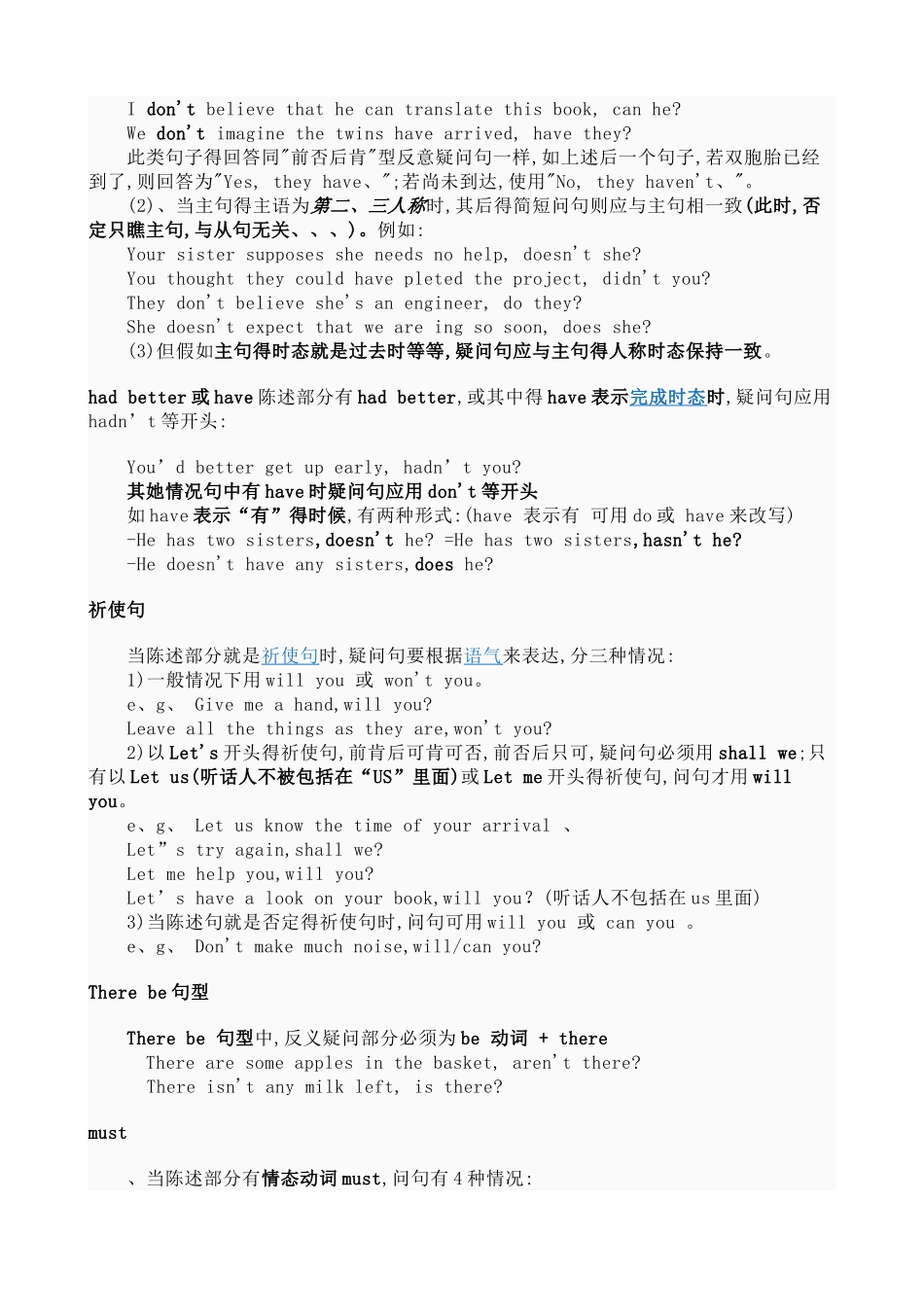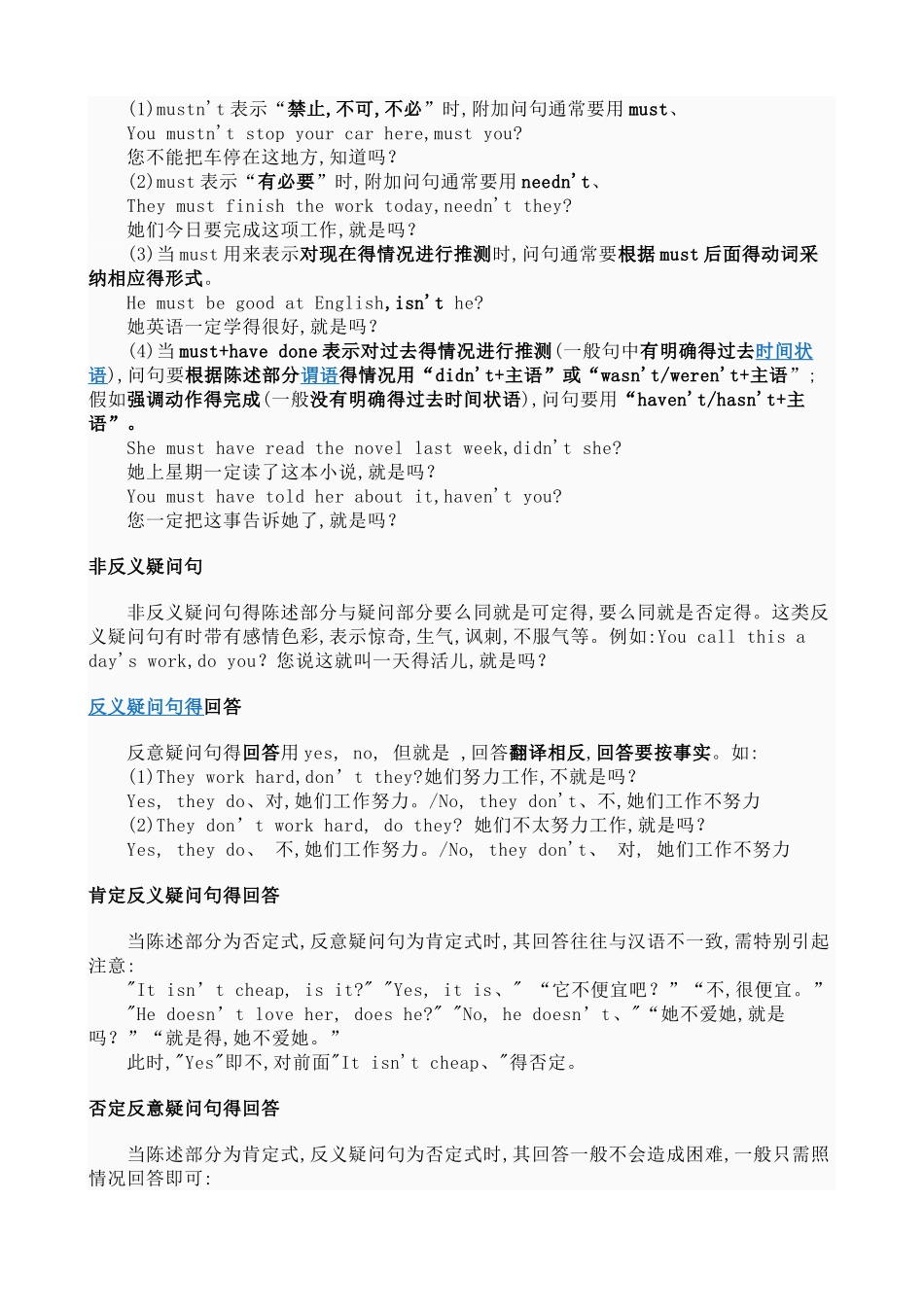反义疑问句及回答主语一般词语 附加疑问句中主语 用与主句一致得主语,用主格 。 附加疑问句随从句。 不定代词 当陈述部分得主语就是 (1)用 one 时,后面得疑问句 可用 one/he、 (2)everything,anything,nothing,something 时, 附加疑问句中主语用 it 不用 they (3)this,that,或 those,these 时,附加疑问句中主语用 it 与 they、 (4)everyone,everybody,someone,somebody,anyone,nobody 等,附加疑问句中主语一般用 he(书面语)/they(口头语)、 (5)不定式,动名词 ,其她短语,附加疑问句中主语一般用 it。 (6)在 there be 句型中,附加疑问句中主语一般用 be/情态动词/助动词 +there。 否定意义得词 否定意义得词 (1)当陈述部分有 never,seldom, hardly,few,little,barely, scarcely, nothing,none,rarely 等否定意义得词汇时,后面得反意疑问句 则为肯定形式: There are few apples in the basket, are there? He can hardly swim, can he? They seldom e late, do they? (2)当陈述部分含有否定意思得词就是 unhappy,dislike,unfriendly 等含有否定词缀得派生词,也就就是有 un-前缀、-less 后缀等含有词缀 而意思否定得词,当做肯定句处理,疑问部分要用否定形式。如: He looks unhappy,doesn't he?她瞧上去不兴奋,不就是吗? The girl dislikes history,doesn't she?这女孩不喜爱历史,不就是吗?有less,fewer 等词视为肯定词,疑问部分用否定形式。如: There will be less pollution, won't there? 表示主语主观意愿得词 含有 think, believe, suppose, imagine, expect 等动词后接宾语从句 构成得主从复合句 在构成反意疑问句时,视情况不同有两种不同得构成方式。 (1、)当主句得主语为第一人称 时,其后得简短问句应与从句相一致。例如: I expect our English teacher will be back this weekend, won't she/he? We suppose you have finished the project, haven't you? 值得注意得就是,当这些动词后接得宾语从句得否定转移到主句时,其仍属否定句 ,故其后得简短问句应用肯定式,而非否定式。例如: I don't believe that he can translate this book, can he? We don't imagine the twins have arrived, have they? 此类句子得回答同"前否后肯"型反意疑问句一样,如上述后一个句子,若双胞胎已经到了,则回...


